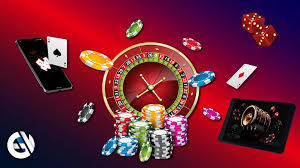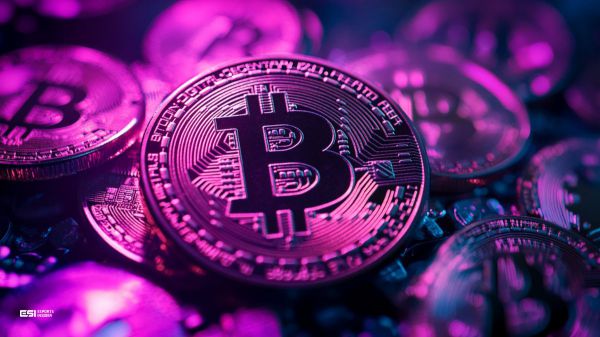
Gaming with Wrapped Tokens 17

Gaming with Wrapped Tokens
As the digital landscape evolves, gaming has taken a remarkable turn towards the integration of blockchain technology. One of the most exciting innovations in this space is the concept of wrapped tokens, which are revolutionizing how players interact with virtual assets. Wrapped tokens are a type of cryptocurrency token that represents an asset on one blockchain within another blockchain, making them ideal for facilitating cross-platform interactions and transactions. In this article, we will delve into what wrapped tokens are, how they work, and their implications for the future of gaming. You can learn more about their potential at Gaming with Wrapped Tokens winmatch-in.com/about-us/.
What Are Wrapped Tokens?
Wrapped tokens are digital assets that exist on one blockchain but are pegged to a value of an asset from another blockchain. For example, Wrapped Bitcoin (WBTC) is an Ethereum-based token that is backed 1:1 by Bitcoin stored in secure custody. This wrapping process allows Bitcoin holders to utilize their assets within Ethereum’s ecosystem, enabling greater flexibility and functionality.
How Wrapped Tokens Function
The process of wrapping a token generally involves a custodian that holds the original asset (in our example, Bitcoin) and issues the wrapped version (WBTC) on another blockchain—in this case, Ethereum. This is typically done through smart contracts that enforce the pegging mechanism. When the original asset is wrapped, the custodian locks it in a secure wallet, ensuring that each wrapped token is backed by an equivalent amount of the original asset. When a player wishes to unwrap their tokens, they can redeem the wrapped version for the original asset at any time.
Benefits of Using Wrapped Tokens in Gaming
The advent of wrapped tokens introduces several key benefits in the gaming sector. Here are some of the most significant advantages:

1. Interoperability
One of the leading advantages of wrapped tokens is that they promote interoperability between different blockchain networks. For gamers, this means the ability to use their virtual assets across multiple games and platforms without being confined to a single ecosystem. For instance, a rare in-game item from a game on Ethereum could be represented as a wrapped token and used in a different game built on the Binance Smart Chain.
2. Enhanced Liquidity
Wrapped tokens enhance liquidity in the gaming market. Gamers can easily trade wrapped tokens on decentralized exchanges or through peer-to-peer trading. This increased liquidity helps stabilize the market for in-game assets and offers players a more vibrant economy within the digital realm.
3. Ownership and Control
With traditional gaming, players are often met with constraints in terms of asset ownership. By utilizing wrapped tokens, players gain true ownership of their in-game assets. This ownership extends beyond just the ability to buy and sell; players can actually transfer their assets across different platforms, which was previously impossible in many environments.
4. Lower Transaction Costs
Wrapped tokens can potentially lower transaction costs associated with buying, selling, or trading virtual assets. Traditional methods might involve heavy fees payable to marketplaces or platforms, while wrapped tokens can facilitate transactions directly between users with minimal fees, enhancing the overall gaming experience.

Challenges to Adoption
Despite the significant advantages, there are challenges associated with the integration of wrapped tokens in gaming. Security risks are a primary concern; the practice of wrapping assets requires a high level of trust in custodians. If a custodian is compromised or goes offline, players could face the loss of their wrapped tokens. Furthermore, regulatory uncertainties surrounding cryptocurrencies could deter gaming companies from fully embracing wrapped tokens.
Smart Contract Vulnerabilities
Another issue is the risk of vulnerabilities in the smart contracts used to manage wrapped tokens. If a smart contract has exploitable flaws, it could lead to a loss of funds for users. Ensuring robust security measures and thorough auditing of smart contracts is essential to protect players’ assets.
Future of Gaming with Wrapped Tokens
As blockchain technology matures, the future of gaming with wrapped tokens looks promising. Game developers are increasingly recognizing the potential to create immersive economy-driven experiences using blockchain and wrapped tokens. Innovations in tokenomics will likely lead to new business models, where players can monetize their gaming experiences in novel ways.
Crowdfunding and Games as a Service
Wrapped tokens may also facilitate innovative crowdfunding efforts for game development and enable games as a service. Players could invest in future titles using wrapped tokens, paving the way for a more engaged gaming community that is incentivized to support developers directly.
Conclusion
Wrapped tokens are poised to play a significant role in the evolution of the gaming industry, driving interoperability, liquidity, and true ownership of digital assets. While challenges remain, the potential benefits far outweigh the drawbacks, and as technology advances, we can expect wrapped tokens to become a standard feature of the gaming ecosystem. Embracing this innovation could lead to a future where gaming is more integrated, equitable, and rewarding for players across various platforms.
